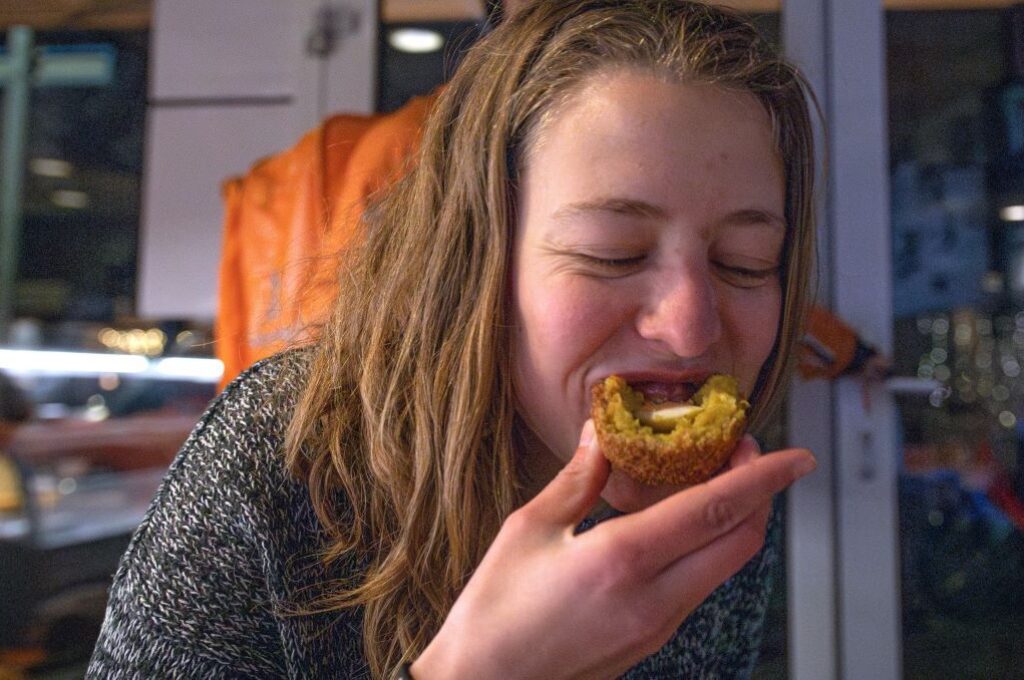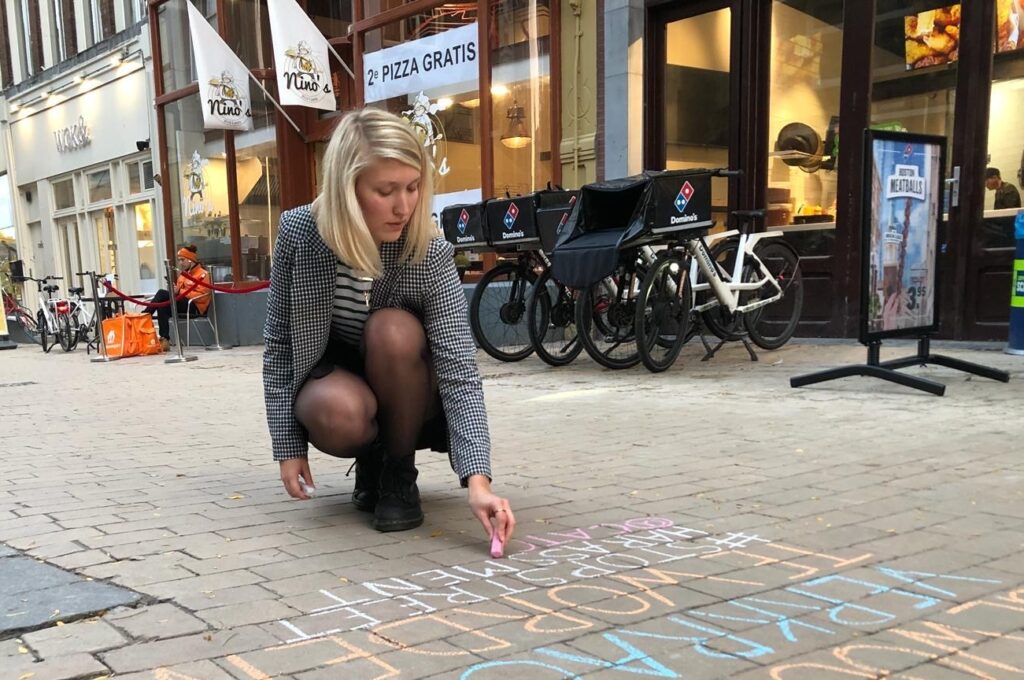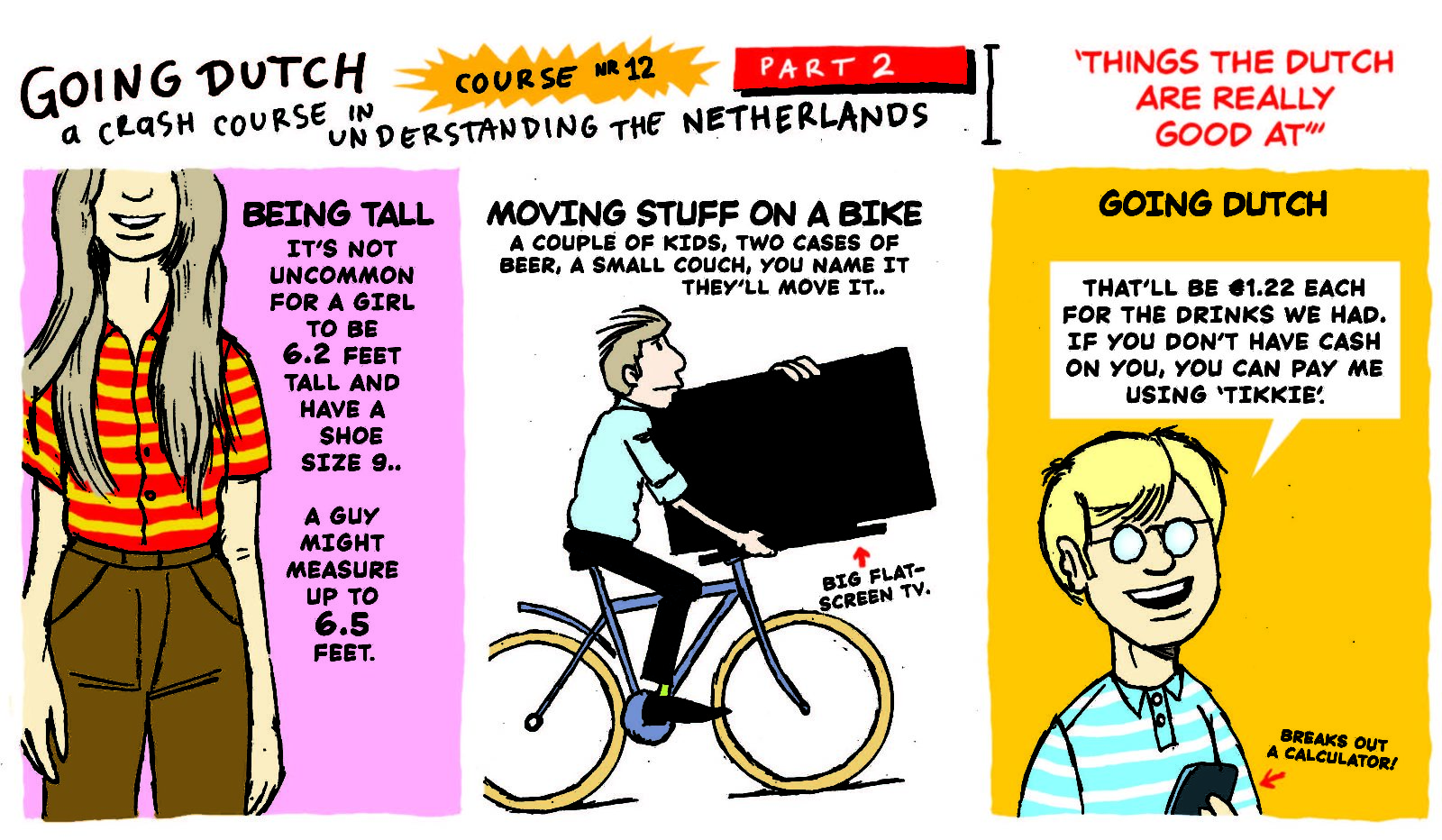About six percent of the international graduates at Dutch universities start a business in the Netherlands. What about Hanze’s international graduates?
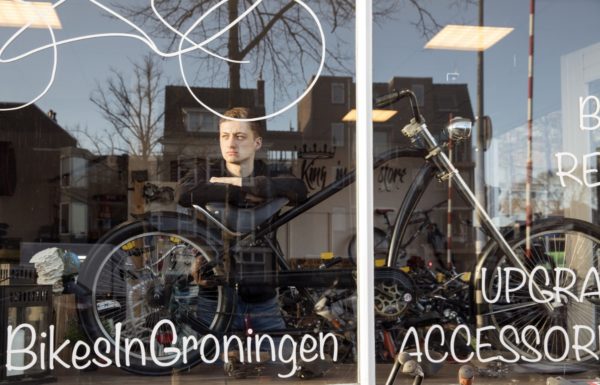
Henrikas Gelgota (25) came to Groningen in 2013 to study International Business. In the second year of his bachelor, the Lithuanian decided to start his own business. He has been running Bikes in Groningen, a cycle shop in Sint Jansstraat, since. ‘I was in the right place at the right time and with the right people when the opportunity arose. A Lithuanian friend I met here in Groningen ran a workshop in this space and lived here. He wanted to move away because his business was not going well, so I took over the space.’ His choice for a second-hand bike shop was more a practical decision than motivated by a passion for bicycles. ‘I didn’t have a business plan floating around in my head for years. I just wanted to do business, to learn the fundamentals, starting from zero. Working with bikes seemed like a good option because everybody likes them and you can go in many different directions with them. You can sell them, you can fix them, you can rent them out.’ So without any prior knowledge about bikes, Hendrikas set up a company that revolves around the Netherlands’ favourite mode of transportation.
I know how to fix the bikes, I know many suppliers and people of Groningen know where to find me
The first two years were tricky, but the young entrepreneur really enjoyed figuring everything out. It was also something his father had done in the past. ‘My dad has a car trading company, buying foreign cars and selling them to other countries. He started out with one car in 1995 and now he has seven companies within Europe and about 150 employees.’ Though Gelgota junior is not up to this level yet, he has definitely made a lot of progress since he first started. ‘By now I know about the most important brands and how they work, I know how to fix the bikes, I know many suppliers and people of Groningen know where to find me.’ The nearly graduated business student thus has plenty of plans for the future. ‘I have a lot of different ideas what I could do. I could for instance boost my internet sales or I could do something with city tours and rentals.’
The worst things you can do is solely going to lectures and just listening to what your teachers say
Whatever turn his own business might take, Hendrikas thinks Groningen is a good home base for an entrepreneur. ‘There are so many young people here in the city, all from different cultural backgrounds and with different expertise and talents. That’s what I like most about Groningen, there are a lot of opportunities to collaborate with others.’ For inspired students he has an important word of advice: don’t wait till your graduation. ‘The worst things you can do is solely going to lectures and just listening to what your teachers say. Especially when it comes to business, university just gives you a couple of guidelines. If you really want to do business, take the first challenge you get, go out and do it.’
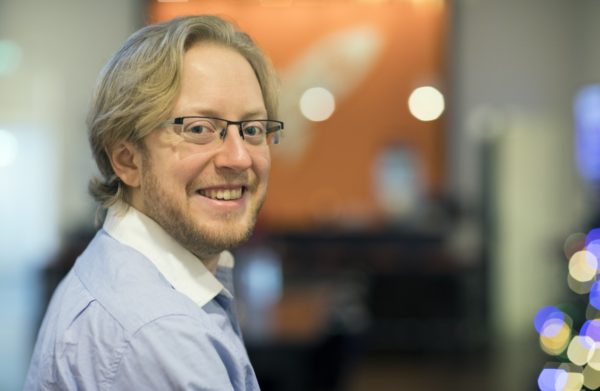
Eric Fath-Kolmes (31) completed a Master in Business Administration (MBA) at the Hanze, after which he started his own consultancy firm. The Canadian came to Groningen when his wife got a PhD position at the University Medical Centre Groningen. He had always been interested in doing an MBA and needed a reason to also move to the Netherlands, so he applied at Hanze. By that time, he already had plenty of work experience within a family business. ‘I did my bachelor’s in computer engineering in Canada and worked for about six years running a start-up in software development for TV production.’
Nowadays there are new models that are much more focused on sustainability
Though he was initially looking into full-time work opportunities after finishing his MBA, he eventually decided to set up his consulting company. ‘I had gotten into contact with a group of people who are working on business modelling and strategy development and focus on sustainable business models. Through them I ended up getting an opportunity that prompted me to start my own business. That group is now the primary partner I work with.’
His company, Fath Consulting, helps other businesses in making the move towards sustainability. The Flourishing Business Canvas is an important toolkit Eric uses in his consulting work. ‘Traditional forms of business modelling usually frame a company’s activities and strategy in terms of how it creates value and captures value. Yet nowadays there are new models that are much more focused on sustainability, in the environmental, social, as well as economic sense. We also focus on sustainability, but try to take it further. We ask ourselves if we can do better than just not harming the planet and really help businesses to flourish.’
I’ve never been the best at taking a step back to look at why we’re doing what we’re doing
The company name might not be the most original one, but it means a lot to him. ‘I’m part of the family business back in Canada, Fath Group of Companies. The companies primarily focus on road construction and sign manufacturing. I’m the third generation and we have a lot of family history. Furthermore, a lot of important ideas behind sustainable and flourishing businesses are about keeping future generations in mind. So by using my family name I can add to the history of the family business and look towards the future.’
The importance of being focused on the future is one of the main lessons Eric has learned. ‘I’ve never been the best at taking a step back to look at why we’re doing what we’re doing. I tend to just jump in and get things done. I always thought I didn’t have time for strategy, because there were a hundred and ten other tasks to do. But thinking strategically is pretty important. How to do this? How to fit it into your time schedule? How to include and implement a strategy? That is quite complex.’ Eric recommends other budding entrepreneurs to think their strategy through. ‘You don’t have to have a picture perfect plan. But please make a sketch of how you plan to work with people, who you plan to partner with and how you are going to make money.’

